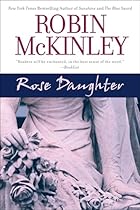 September was a good month for my blog. I finished up my Coursera MOOC in Fantasy and Science fiction...it was a wonderful experience, but it was exhausting! I posted reviews for many of the books required for this course:
September was a good month for my blog. I finished up my Coursera MOOC in Fantasy and Science fiction...it was a wonderful experience, but it was exhausting! I posted reviews for many of the books required for this course:
I was going to take the Greek / Mythology Coursera course, but have decided that it covers the materials way too quickly...I don't think I can do justice to so much amazing literature in just 10 weeks. Therefore, I'm going to return to my focused study of Paradise Lost. Expect more posts soon! :)
 The last 11 days of September, I led an email discussion of Sandi Rog's new book Walks Alone for the ACFW Bookclub. I have loved every Sandi Rog book I've ever read. Walks Alone is a christian fiction historical romance about a young woman in post-Civil War era who travels alone from New York to Denver and is kidnapped along the way by a band of Native Americans. Although she is filled with dread and fear, she soon discovers that they have a side to their story too...and she begins to fall in love with her kidnapper. I admit that when I read the description I thought it to be a bit trite, but I gave the book a try anyway because of my love for Sandi Rog's books. I'm so glad I did. :) It wasn't trite at all. It was a really cute book. My review of the book is here.
The last 11 days of September, I led an email discussion of Sandi Rog's new book Walks Alone for the ACFW Bookclub. I have loved every Sandi Rog book I've ever read. Walks Alone is a christian fiction historical romance about a young woman in post-Civil War era who travels alone from New York to Denver and is kidnapped along the way by a band of Native Americans. Although she is filled with dread and fear, she soon discovers that they have a side to their story too...and she begins to fall in love with her kidnapper. I admit that when I read the description I thought it to be a bit trite, but I gave the book a try anyway because of my love for Sandi Rog's books. I'm so glad I did. :) It wasn't trite at all. It was a really cute book. My review of the book is here.
On my blog, the last week of September was dedicated to Aarti's A More Diverse Universe blog tour. She did an amazing job, and I really appreciate the effort she put in to the tour. For this tour, I reviewed:
And, of course, I reviewed books that fit into none of these categories:
Sadly, I only had time to post one opinion article--it was about the creationism / evolution debate.
In an attempt to become more active in the blogosphere, I also joined a few other blog activities such as R.eaders I.mbibing P.eril VII, The Classics Club, The Orange Prize Project, and The Complete Booker.
 I will be starting out October with posts for Banned Books Week. Book Journey has organized a blog tour in honor of the week. I will be blogging about 4 banned children's/YA books during that week. From October 20 - 31, I'll be leading an email book discussion of The Embittered Ruby, by Nicole O'Dell for the ACFW Bookclub. You're all welcome to read the book and join in the discussion! This month is dedicated to Christian YA literature, and as you can see on the ACFW Bookclub website, we discuss two books a month, and you're welcome to choose either one of them. Besides my hope of getting farther into my study of Paradise Lost, here's a list of books I hope to read in October:
I will be starting out October with posts for Banned Books Week. Book Journey has organized a blog tour in honor of the week. I will be blogging about 4 banned children's/YA books during that week. From October 20 - 31, I'll be leading an email book discussion of The Embittered Ruby, by Nicole O'Dell for the ACFW Bookclub. You're all welcome to read the book and join in the discussion! This month is dedicated to Christian YA literature, and as you can see on the ACFW Bookclub website, we discuss two books a month, and you're welcome to choose either one of them. Besides my hope of getting farther into my study of Paradise Lost, here's a list of books I hope to read in October:
Surprised by Joy, by C. S. Lewis (IN PROGRESS)
Harry Potter and the Sorcerer's Stone, by J. K. Rowling
Roll of Thunder Hear my Cry, by Mildred D. Taylor (IN PROGRESS)
Harry Potter and the Sorcerer's Stone, by J. K. Rowling
Roll of Thunder Hear my Cry, by Mildred D. Taylor (IN PROGRESS)
The Magician's Nephew, by C. S. Lewis
Lord of the Flies, by William Golding
Interview with a Vampire, by Anne Rice
The Poisoner's Handbook, by Maxwell Hutchkinson
Pride and Prejudice: A Norton Critical Edition, by Jane Austen (IN PROGRESS)
Blood and Other Cravings, ed. Ellen Datlow
A Book of Horrors, ed. Stephen Jones
Lord of the Flies, by William Golding
Interview with a Vampire, by Anne Rice
The Poisoner's Handbook, by Maxwell Hutchkinson
Pride and Prejudice: A Norton Critical Edition, by Jane Austen (IN PROGRESS)
Blood and Other Cravings, ed. Ellen Datlow
A Book of Horrors, ed. Stephen Jones
House of Wisdom, by Jim Al-Khalili





















